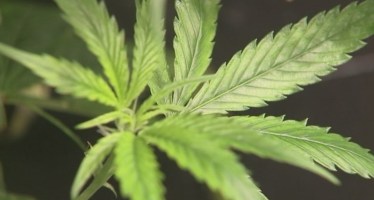Breaking News
House Bill Would Legalize ‘Charlotte’s Web’ Medical Marijuana
Article by Matt Ferner, Huffington Post – July 28, 2014 A bipartisan bill introduced in the
...
History lessons from regulation.

In 1933, after seeing the futility and dangers of Prohibition, America decided to take a new route and set out to find a way to handle the issues of responsible alcohol consumption and regulation. A new “normal” was called for and we found ways of integrating what were once black-market items into our lives and weekends. Organizations like Alcoholics Anonymous soon arose to help deal with the nasty social consequences and many other organizations like organized sports milked the long-suppressed desires for a good buzz and a good time. Little by little, systems for dealing with issues surrounding its formal sale, sprung up. Statistics and averages associated with the dangers of this drug were created and before you know it, we were setting goals to improve on those statistics including government-backed programs. Laws concerning some of its deadliest consequences like drunk driving were drafted and revisited regularly. All along this process we learned that we could (given certain limitations) regulate the sale what is now considered the most dangerous drug. We had, after all, been consuming it for generations. Fast forward to the present and we find ourselves in a similar situation with marijuana. Many are panicking (as can be expected) but we have a framework, a framework that has permitted the legal commerce of recreational drugs with far more destructive consequences than cannabis. Many are concerned, citing the potential for increased pot use among teens but statistics related to alcohol and tobacco use show that their regulated sale has actually curbed underage consumption and limited availability over the past years and decades. Why might this be? The local stores are legally stipulated to ask for ID, the black market doesn’t give a hoot. Drunk driving fatality rates have decreased by 49% since 1991 largely because you can legally stipulate vendors to prohibit the sale of alcohol to intoxicated persons. Control, as we can see, works a whole lot better than criminalization.
Given the comparatively light side effects that cannabis has, I think we can look forward to a very successful market integration for it. We can revisit the successes of previous efforts aimed at curbing alcohol and tobacco abuse and benefit. It is important, however, to abandon the smear campaigns of old and start interacting with people through real, hard data that is congruent with science and their understanding of the topic. Let us use our hindsight so that we can responsibly and level-headedly implement the future.
Related Articles
Amendment 2 defeated; voters reject medical marijuana
Voters narrowly rejected the legalization of medical marijuana in Florida on Tuesday after a surge of ads saying the ballot
Lawmaker Predicts Marijuana Will Be Legal Within 5 Years
Two states with legal recreational use. Twenty more that allow medical use. Record-high support at the national level for more permissive policies.
The Future Of Legal Weed Is Bright. Here’s Where It’s Headed Next
After a year of preparation, Colorado opened its doors to the legal marijuana business last week, serving thousands of customers





